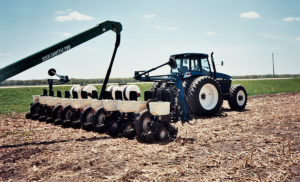Trying to be a good steward of the land has posed many a conundrum to Iowa farmers, myself included. We go to meetings in the winter and we learn about all sorts of conservation methods that will renew the soil, help clean the water, sequester carbon to help with climate change and just, by golly, make you feel better about yourself.
Spring comes and you meet with your banker. Your financial sheet says your net worth has gone south and that hot dry July really put the clamps on your income forecast. Your yield just came up to your crop insurance levels so there’ll be no help there. You’ve begged your landlord to hold off for another year raising the rent but the well-to-do neighbor’s pickup is in his driveway every time you go by. You think I’d like to try some of these progressive farming practices, but maybe this is not the year to change things.
Now let’s talk about the low-hanging fruit. The low-hanging fruit on a tree is that fruit that can be picked with the least amount of time and equipment. I consider the low-hanging fruit in conservation to be no-till. Farming without fall tillage is farming with the least amount of equipment and in the least amount of time. Leaving your crop residue on top of the land throughout the winter has long been recognized as a farming practice that reduces erosion, builds soil organic matter, and takes the pressure off of getting the harvest done so you can get your tillage done.
So maybe this should be the year you try something new. Let’s see, if I don’t till my cornstalks this fall my fall expenses will be much less. Lot smaller fuel bill and I won’t have to hire my Uncle to do the ripping while I finish up the combining. I’ve already got trash whippers on my
on my planter so next spring I won’t have to do any tillage before I plant my soybeans. With all the trash on top it will probably hold down the early season weed pressure so maybe I will only have to spray once when the beans are half grown. I’m saving money! My banker will love it! Next year since I won’t be needing that big piece of iron known as the V-ripper I can sell it and pay down on my machinery loan. I noticed I didn’t get my big 4 wheel drive tractor out of the shed this year so maybe I can sell that too.
This is where I was in 1999. I’ve been a no-tiller ever since. I live on a blacktop road six miles from town. In late winter of 2000 I noticed when I drove to town that once I got past my farms, all the ditches filled with snow were black from topsoil from the wind whipping over the tilled fields. It took a long time but today in 2021 when I drive to town all the ditches are white except for the fields farmed by the two tillage holdouts. All my other neighbors have gone no-till or strip-till proving “once you don’t see black, you’ll never go back”.
The easiest change a farmer can make to his operation that will greatly affect his bottom line and help him feel good about himself is to keep those ditches clean. And you’ve just picked the low-hanging fruit.

